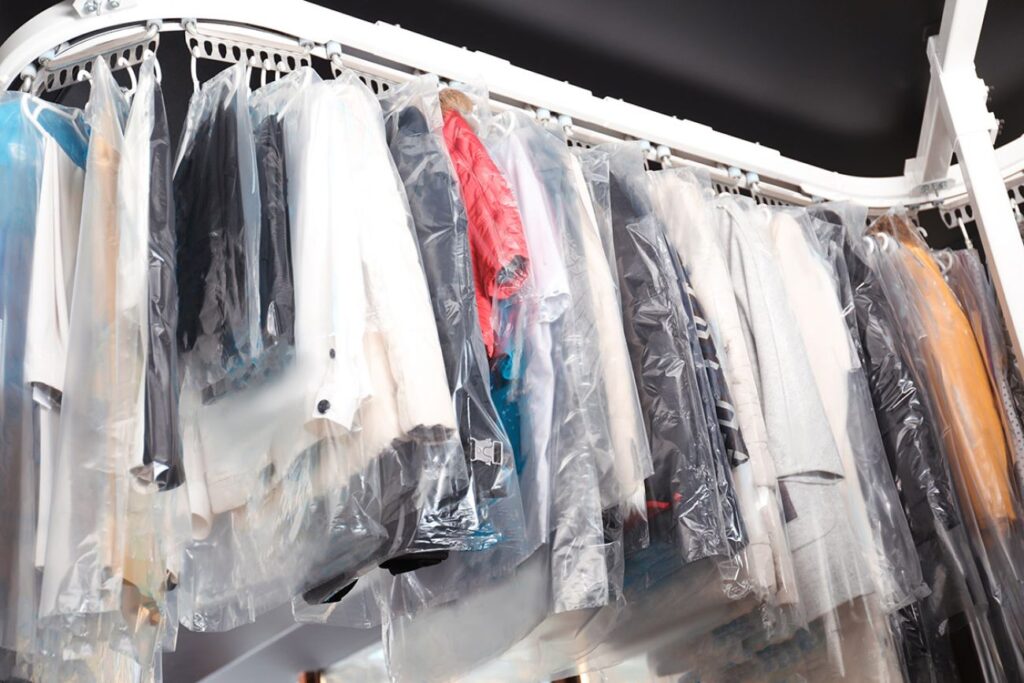
[bridgemi.com – 2023.04.20] A bill in the Legislature aims to phase out a dry-cleaning solvent that gets stains out of sportscoats, but has caused contamination that poses a health threat and costs taxpayers millions of dollars annually to clean up.
A bill sponsored by Rep. Julie Rogers, D-Kalamazoo, would make Michigan the latest state to ban perchloroethylene from the dry cleaning industry. As Michigan struggles to remediate tens of thousands of sites contaminated by a host of industries, Rogers said a ban would help keep at least a portion of that list from growing.
The bill has some early bipartisan support and — after some concessions to industry groups — the Michigan Cleaners Association and Michigan Chemistry Council are not fighting it.
But some individual businesses say they feel singled out for a substance that is widely used in other industries. And they fear new regulations could be the death knell for cleaners already struggling amid rapid changes to the way Americans live and dress.
A powerful cleaner, a toxic pollutant
Commercialized in the 1930s, perchloroethylene is valued for its ability to dissolve organic matter, making it a powerful cleaning agent. Also known as tetrachloroethylene, PCE or perc, it gets stains out of clothing, cleans brake pads and degreases metal.
“Even (dry) cleaners that have transitioned (to other solvents), they will tell you that by far perc is the best solvent to clean hard-to-clean clothes,” said Michelle Batora, executive director of the Michigan Cleaners Association.
But what cleaners and regulators didn’t know for several decades after perc hit the market is that it’s also toxic. Short-term exposure can irritate the skin and lungs. Over time, perchloroethylene can cause neurological damage and harm the kidneys, liver, immune system and blood.
It also doesn’t break down easily, meaning releases from decades ago continue to pollute Michigan today. And it easily evaporates into the air, seeping from contaminated soil or groundwater to pollute homes and businesses.
In the past three years alone, state taxpayers have spent more than $7 million to clean up contamination at former dry cleaners, according to figures provided by the Michigan Department of Environment, Great Lakes and Energy (EGLE).
A push for “proactive” policy
Rogers’ bill, House Bill 4083, would ban the manufacture of dry cleaning solvents containing perchloroethylene starting in December 2031, with sales banned in June 2032, and use banned in December 2032.
An earlier version of the bill would have banned dry cleaners from using perc by December 2028, but Rogers extended the timeline by four years in response to concerns from the industry.
The bill would also create a state fund to help cleaners cover the expensive cost of replacing perchloroethylene-based systems with alternative methods.
If passed, the bill would add Michigan to a small but growing list of states that have phased out perchloroethylene in dry cleaning. Minnesota lawmakers approved a ban in 2021 that takes effect in 2026. A ban in California took effect in January. Other states have set up special taxes on perchloroethylene, funneling the money to a fund that pays for cleanups at contaminated dry cleaners.
Steve Fry, owner of Presidential Cleaners in Brighton, called the legislation the latest hit for an already struggling industry. First came COVID, which briefly shut down dry cleaners and brought about a work-from-home culture that allows employees to swap suits for sweatpants. Then came inflation that has raised the price of hangers, solvents and heating bills.
“If you had a mortgage payment or a lot of equipment payments, you were in deep water,” Fry said.
He said he has watched half of the dry cleaners in Livingston County close since 2020. His business thrived by absorbing customers from former competitors. But he worries about smaller shops that operate on thin margins.
Fry also said he feels singled out, when the chemical is still allowed in other industries, from metal platers to auto repair shops, that have polluted Michigan’s land and water. There are no bills in circulation that would ban perchloroethylene from those industries.
“Dry cleaners are such a small part of perchloroethylene use,” Fry said. “Why just the dry cleaners?”
Indeed, at a public hearing on the bill, Rep. David Martin, R-Davison, proposed amendments that would have extended the ban to all industries.
“If it’s such a hazard to Michigan residents that work in dry cleaning, it should be a hazard and recognize the hazard to every Michigander,” Martin said.
But the amendments were rejected after chemical industry representatives in the room indicated they would fight the bill if such a change was made, and after Committee Chair Laurie Pohutsky, D-Livonia, raised issues with the wording of Martin’s proposal.
Read the original article on bridgemi.com

